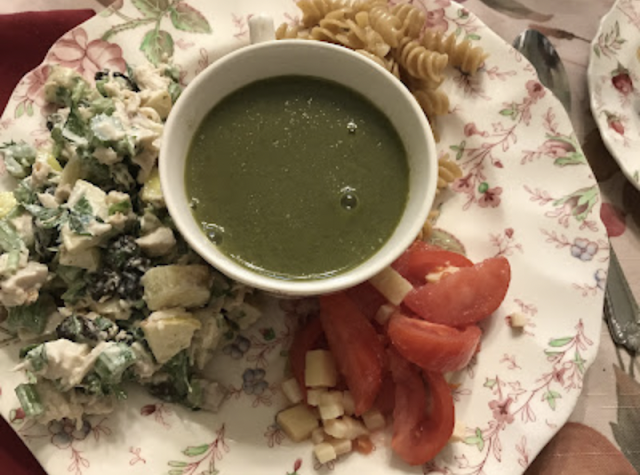 |
| chicken bones that have been pulverized with a hammer |
You'd think that finishing harvesting would be the last work in the garden for the season. However, after everything is harvested, I still have one step left, getting the beds prepped for next spring. One of the tasks on my list is to dig in some organic fertilizers.
If you've been following the news these past few months, you've likely heard that fertilizers, like everything else, are getting more and more expensive. So how about some free fertilizers for the garden?
 |
| 8-10 egg shells, washed, dried and crushed with mortar & pestle |
- composted food and garden scraps, such as vegetable/fruit peeling or trimmings, coffee grounds, grass clippings, leaves, plants. You can even add some paper and cardboard to a compost pile. Nutrients in compost: nitrogen, phosphorus, potassium, magnesium, calcium, boron, copper, iron, zinc, manganese
- ground, washed eggshells. I keep a dish in the fridge for rinsed out eggshells. When I have enough, I oven dry them in a cooling oven for about 30-40 minutes (after baking something else) or at 180 F for 25 to 30 minutes, until quite dry. Once dry, I grind them in a coffee grinder or mortar & pestle. (mortar & pestle is my preferred, as it doesn't send eggshell dust into the air -- mask recommended with coffee grinder). Ground eggshells can then be mixed into the soil before planting. Nutrients in eggshells: calcium. Eggshells decompose best in acidic soil.
- composted animal manure, such as chicken manure or rabbit manure. Don't use cat or dog waste, as you can inadvertently introduce pathogens to the soil. But well-composted manure from poultry and rabbits is beneficial for the garden. If you or someone you know raises backyard chickens (or rabbits), you could have a free source of fertilizer for your garden. Nutrients in composted chicken manure: nitrogen, phosphorus, potassium, calcium, magnesium
- seaweed -- check with your state to find out if harvesting seaweed is allowed. In my area, there is one beach where citizens are allowed to collect a limited amount of seaweed. Seaweed needs to be thoroughly rinsed before use, to remove salt. It can be used as a mulch (directly applied to the soil, composted then mixed into the soil or you can make a liquid fertilizer (see this article). Nutrients in seaweed (may vary according to variety and where harvested): nitrogen, magnesium, potassium, calcium, iodine, phosphorus, zinc
- bone meal -- you can buy bonemeal. But this list is about free sources. You can make bonemeal in your kitchen from chicken bones. After our last whole roasted chicken, I put the bones into the crockpot and covered with water, allowing to simmer for about 14 hours. I then picked any remaining meat off those bones, poured off the broth for a pot of soup, then recooked the chicken bones in fresh water for another 14 hours. At the end of this second simmering, I poured off this new stock for another batch of soup. I rinsed the bones in clean water, then spread them out on a baking sheet and baked at 400 degrees F for about an hour. The bones were lightweight, brittle, and browned at this point. After the bones cooled, I placed them into a multi-layered paper bag (the bag from 10 lbs of sugar) and pounded with a hammer on the concrete garage floor. The bones easily pulverized. Very little bone meal is needed in an application, 1 tablespoon max for 2 square feet. Nutrients in bone meal: phosphorus, calcium. Many experts feel bone meal is best for acidic soil.
Most garden soils benefit from a combination of organic soil amendments when used as fertilizers. No one organic DIY amendment can provide for all of a plant's needs. And some soils can't use one or more of these amendments, due to the soil's pH. My soil is acidic. I use a combination of eggshells, composted yard and kitchen waste, coffee grounds, and bonemeal, as well as purchased chicken manure and commercial compost.
 |
| chicken bones after twice simmered then baked dry |
If hammering an animal's bones to pieces before adding to the garden feels weird or macabre to you, can I share my perspective? I feel that if my family is going to use an animal for food, then we should make good use of as much of that animal as possible. Feeding the soil so that more can grow in an area is a good use in my opinion. Besides, becoming a useful soil amendment is a better ending than rotting in a landfill, don't you think?







